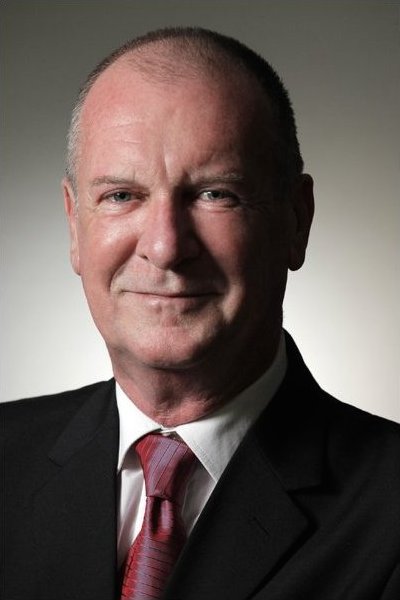Occasionally a seminal work appears that becomes a defining piece, a turning point, or a breakthrough in a particular area. Considering the religious LGBTQ+ conversion movement, the documentary “Pray Away,” released today on Netflix, could very well be that work.
After mental health professional organizations realized that gay and lesbian people were not sick and that their decades of cruel — and at times barbaric — treatments had failed, the Christian church stepped into the space. The “ex-gay” movement, later to become more commonly known as so-called “conversion therapy,” was born.
In the early 70s, fueled by the Jesus Revolution, the Charismatic movement, and modern translations of the Bible, individual but unconnected “ministries” sprung up like mushrooms in the U.S. and other parts of the world, including Australia.
As Michael Bussee, a pioneer of the movement, tells us in the documentary, some of the U.S. groups came together in 1976 and founded Exodus.
Exodus grew to become the umbrella organization with 100s of affiliate ministries globally. At its height its president, Alan Chambers, who also appears in the documentary, claimed that Exodus International received more than 400,000 inquiries each year from people wanting to turn straight — and that hundreds of thousands actually had.
In less than a decade, Alan would not only be admitting publicly it was a lie and that 99.9 percent of the people he knew had not changed orientation, but also apologizing for the harm and deaths caused by those lies and the organization. This process is also explored in the documentary. Exodus closed its doors in 2013.
Previous leaders and spokespeople for the “change is possible” movement and organizations — John Paulk, Yvette Cantu Schneider, Randy Thomas, and Julie Rodgers — all have a story to tell. There are uncomfortable and sometimes chilling moments as they talk about their involvement, regrets and moments of awakening.
Archival footage is shown of now deceased “ex-gay/trans” advocates Joseph Nicolosi and Sy Rogers, with whom some will be familiar. Current proponents Anne Paulk from Restored Hope Network and Ricky Chelette from Living Hope Ministries refused to be interviewed. Considering Julie Rodgers’ claims of manipulation by Chelette while she was a part of Living Hope, his unwillingness to go on camera is understandable.
To think that this documentary is just about a series of historical events would be a huge mistake. It is still happening now, and new groups have started up.
In every non-affirming evangelical, Pentecostal (and some mainstream) churches, young LGBTQ+ people are going through the same emotional, psychological and spiritual torment many of us endured for decades. Within some cultures and countries today, the pressure to conform to a heterosexual norm is enormous, even life-threatening. Exorcisms to cast out homosexual demons still occur in Christian and Islamic circles.
One thing that isn’t explored in the documentary is the intermediary step Randy and Julie took on their journeys. When I spent time with them at the final Exodus Conference in 2013, they had both moved to the “it’s okay for me to be gay, but I can never act on it” space. They were looking at a celibate future. Falling in love changed that.
In some circles there has been a movement away from “change is possible” to a celibacy model (e.g., Sydney Diocese Anglicans). The celibacy model, however, is still based on the same outdated belief that was the foundation of the conversion “therapy” movement. That is the belief that any deviation from a heterosexual orientation or binary gender model is sin and a sign of brokenness.
It took Exodus four decades to realize they were wrong and the harm they had caused. God, I hope it doesn’t take that long for the celibacy movement to wake up.
The above does not detract from the content of the documentary. “Pray Away” is chock full of excellent and powerful material. The only reason you’d turn it off is to give yourself a break from the highly emotional content.
Director/producer Kristine Stolakis and her team are to be highly commended for their well thought-out and constructed documentary.
Let’s hope and pray that the documentary will go way beyond the viewing of LGBTQ+ people and allies and be the catalyst for change, so desperately needed, in conservative churches and denominations and in the lives of religious leaders and parents.
Warning: If you have experienced LGBTQ+ conversion practices or religious trauma you may be triggered by the content. On the Pray Away website there are some tips and resources to prioritize your mental health before, during, and after viewing the film: https://www.prayawayfilm.com/resources
Republished with permission of the author

One of Australia’s foremost commentators on faith and sexuality, Anthony Venn-Brown OAM is the author of the best-selling autobiography A Life of Unlearning, which details his journey from being one of the first in the world to experience religious gay conversion therapy, to becoming a married, high-profile preacher in Australia’s growing megachurches (including the precursor to Hillsong), to living as an openly gay man. Founder and CEO of Ambassadors & Bridge Builders International, he was awarded the Order of Australia Medal (OAM) for service to the LGBTIQ community.
